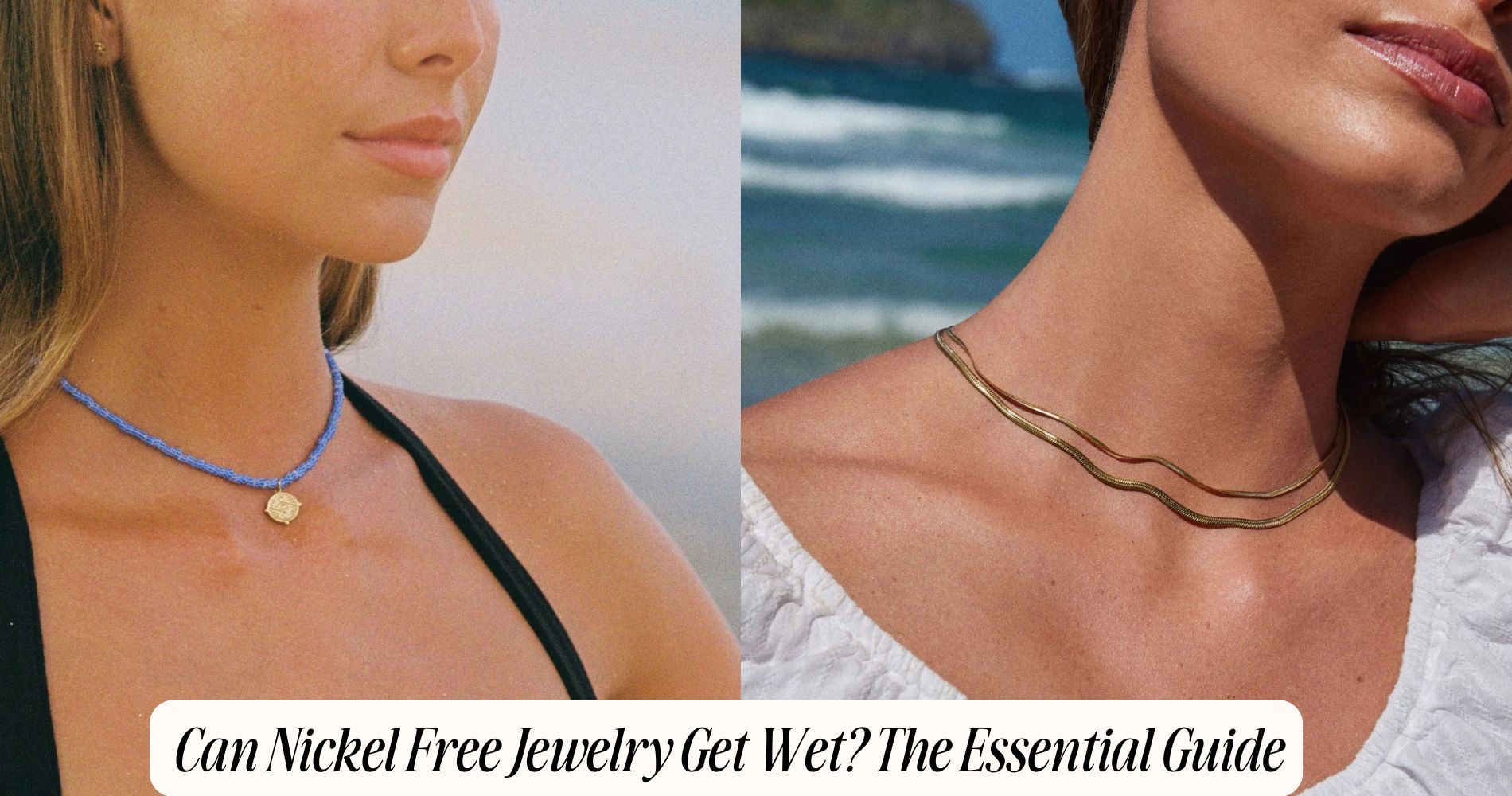
Can Nickel Free Jewelry Get Wet? The Essential Guide
Can Nickel-Free Jewelry Get Wet? Yes, nickel-free jewelry can get wet and is generally suitable for daily wear. It can handle moisture, but prolonged exposure to harsh soaps or chlorine may dull its shine over time. Explore our Tarnish-Free Jewelry collection for durable, water-friendly pieces. To maintain its brilliance, rinse your jewelry with clean water after showers or swimming and dry it gently with a soft cloth. Proper cleaning and storage will ensure your favorite pieces stay beautiful for years to come!
Understanding Nickel-Free Jewelry: What It Is and Why It Matters
When you consider adding jewelry to your collection, understanding what nickel-free jewelry is and why it matters can make all the difference.
Nickel allergies affect many people, causing skin irritation and discomfort when wearing traditional jewelry. By opting for nickel-free options, you eliminate the risk of allergic reactions, allowing you to wear your pieces with confidence.
Plus, nickel-free jewelry is increasingly becoming a significant part of jewelry trends, offering a variety of stylish designs that cater to both sensitive skin and fashion-forward tastes.
Whether you're drawn to elegant earrings or statement necklaces, choosing nickel-free guarantees your accessories complement your style without compromising comfort.
Investing in nickel-free jewelry not only prioritizes your well-being but also keeps you in sync with the latest trends.
The Materials Used in Nickel-Free Jewelry
Nickel-free jewelry showcases a diverse array of materials that cater to both aesthetics and skin sensitivity.
You'll find that sterling silver stands out as a popular choice, known for its timeless elegance and durability. Many artisans also turn to copper alternatives, which offer a warm tone and unique patina over time, adding character to your pieces.
Other materials like titanium and surgical-grade stainless steel are also excellent options, providing strength without irritating sensitive skin.
Resin and glass can create striking designs, allowing for creative expression without the risk of allergic reactions.
Effects of Water on Different Jewelry Materials
While enjoying your favorite jewelry, it's essential to take into account how water can affect different materials. Water resistance varies considerably among jewelry types.
For example, stainless steel and titanium boast excellent water resistance, making them ideal for everyday wear. On the other hand, porous materials like leather or certain gemstones can absorb moisture, leading to damage or discoloration.
If you own plated jewelry, prolonged exposure to water can cause the plating to wear off, diminishing its luster.
To guarantee your pieces last, prioritize jewelry maintenance by storing them in dry areas and cleaning them regularly. Always check the manufacturer's guidelines for specific water resistance ratings to help you keep your cherished items in pristine condition.
Showering With Nickel-Free Jewelry: Is It Safe?
Is it really safe to shower with nickel-free jewelry? Absolutely! Nickel-free jewelry is often made from materials like stainless steel, titanium, or sterling silver, which can withstand the moisture of your shower.
However, it's vital to take into account your showering habits. If you use harsh soaps, shampoos, or conditioners, these can dull your jewelry's shine and affect its longevity.
To guarantee proper jewelry care, rinse your pieces with clean water after exposure to products and dry them gently with a soft cloth.
While showering with nickel-free jewelry is generally safe, it's advisable to remove it if you're using chlorine-based products or if you notice any irritation.
Keep your accessories looking their best by adopting mindful showering habits!
Swimming and Nickel-Free Jewelry: What You Need to Know
After ensuring your nickel-free jewelry can handle the moisture of a shower, you might wonder about its compatibility with swimming.
While many nickel-free options are resistant to corrosion, it's important to take some swimming precautions. Chlorine and saltwater can still affect your jewelry, leading to tarnishing or damage over time.
To protect your pieces, consider removing them before diving in, especially if you're swimming in chlorinated pools. If you choose to wear them, rinse your jewelry with fresh water afterward to minimize any harmful effects from water exposure.
Cleaning Nickel-Free Jewelry: Best Practices
To keep your nickel-free jewelry looking its best, regular cleaning is essential.
Start by using gentle cleaning techniques, such as a soft cloth or a microfiber towel, to wipe away dirt and oils.
For deeper cleaning, mix mild soap with warm water, and gently scrub your jewelry with a soft brush, paying attention to intricate details.
Rinse thoroughly and dry with a soft cloth to prevent water spots.
Avoid harsh chemicals that can damage your jewelry's finish.
Incorporating these simple practices into your jewelry maintenance routine will guarantee your pieces remain vibrant and beautiful.
Storing Your Nickel-Free Jewelry to Prevent Damage
Proper cleaning helps maintain the beauty of your nickel-free jewelry, but storing it correctly is just as important in preventing damage.
Invest in suitable storage solutions, like soft pouches or dedicated compartments, to keep your pieces safe from scratches and tarnish. Protective cases are ideal for maintaining your jewelry's shine; choose ones lined with soft fabric to cushion your items.
Avoid tossing your jewelry into a single box where pieces can tangle and rub against each other. Instead, organize them by type or occasion, ensuring they remain untangled and easily accessible.
Additionally, keep your stored jewelry in a cool, dry place to prevent moisture exposure.
With these thoughtful storage strategies, your nickel-free jewelry will remain stunning for years to come.
Signs of Damage: How to Identify When Your Jewelry Needs Care
Jewelry, like any cherished possession, deserves attention when it shows signs of wear.
Start with a visual inspection; look for scratches, discoloration, or missing stones. If you notice a dull finish or tarnishing, it's a clear signal that your piece needs care.
Pay attention to clasps and links—if they feel loose or show signs of wear and tear, it's time for a closer look. Additionally, be mindful of any unusual sounds, like rattling or creaking, that could indicate loose components.
Don't ignore changes in how the jewelry feels against your skin; irritation or discomfort can mean it needs a thorough cleaning or repair.
Regularly checking for these signs will keep your nickel-free jewelry looking its best.
Tips for Maintaining the Longevity of Your Nickel-Free Pieces
Maintaining the beauty and integrity of your nickel-free pieces is simpler than you might think.
Start by storing your jewelry in a cool, dry place, away from direct sunlight. Use soft pouches or anti-tarnish cloths to prevent scratches and tarnishing.
When cleaning, opt for gentle methods—mild soap and warm water work wonders. Avoid harsh chemicals that can damage the finish.
Additionally, try to remove your jewelry before swimming, showering, or exercising; sweat and moisture can dull its shine.
Regularly inspect your pieces for signs of wear and address any issues promptly.
Frequently Asked Questions
Can I Wear Nickel-Free Jewelry During Sports Activities?
You can definitely wear nickel-free jewelry during sports. It pairs well with athletic wear and offers sweat resistance, so you won't need to worry about irritation or damage while you're getting your workout in.
Are There Hypoallergenic Options in Nickel-Free Jewelry?
You'll find various hypoallergenic options in nickel-free jewelry made from different materials like titanium, surgical steel, and gold. These choices cater to your skin sensitivities, ensuring comfort without sacrificing style or durability.
How Can I Tell if Jewelry Is Truly Nickel-Free?
To tell if jewelry's truly nickel-free, look for certifications or labels. You can also use nickel testing kits at home. These tools help guarantee your pieces are safe, reducing allergy risks and enhancing your comfort.
Does Nickel-Free Jewelry Tarnish Over Time?
Yes, nickel-free jewelry can tarnish over time, but proper care and tarnish prevention techniques enhance material durability. Regular cleaning and storing it safely will help maintain its shine and prevent oxidation from tarnishing.
What Should I Do if My Skin Reacts to Nickel-Free Jewelry?
If your skin reacts to nickel-free jewelry, try removing it immediately. You might consider hypoallergenic materials or explore jewelry alternatives like silicone or titanium, which are gentler on sensitive skin and less likely to cause irritation.
Conclusion
To sum up, while nickel-free jewelry offers a hypoallergenic alternative, it's important to treat it with care. Avoid exposing your pieces to water for extended periods, whether you're showering or swimming, to preserve their beauty and integrity. Regular cleaning and proper storage will keep your jewelry shining for years to come. By following these simple guidelines, you can enjoy your nickel-free treasures without worry, ensuring they remain stunning and cherished additions to your collection.








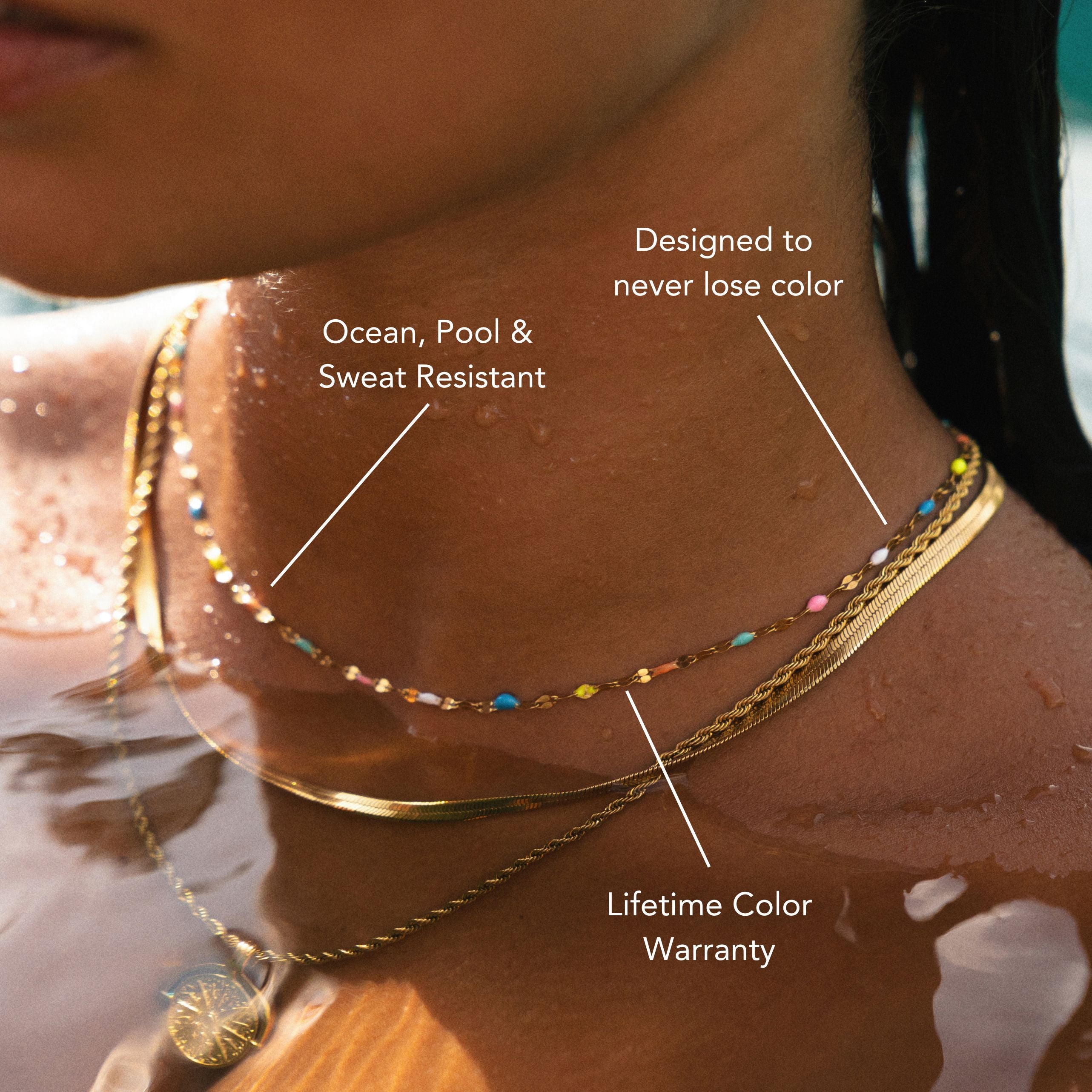


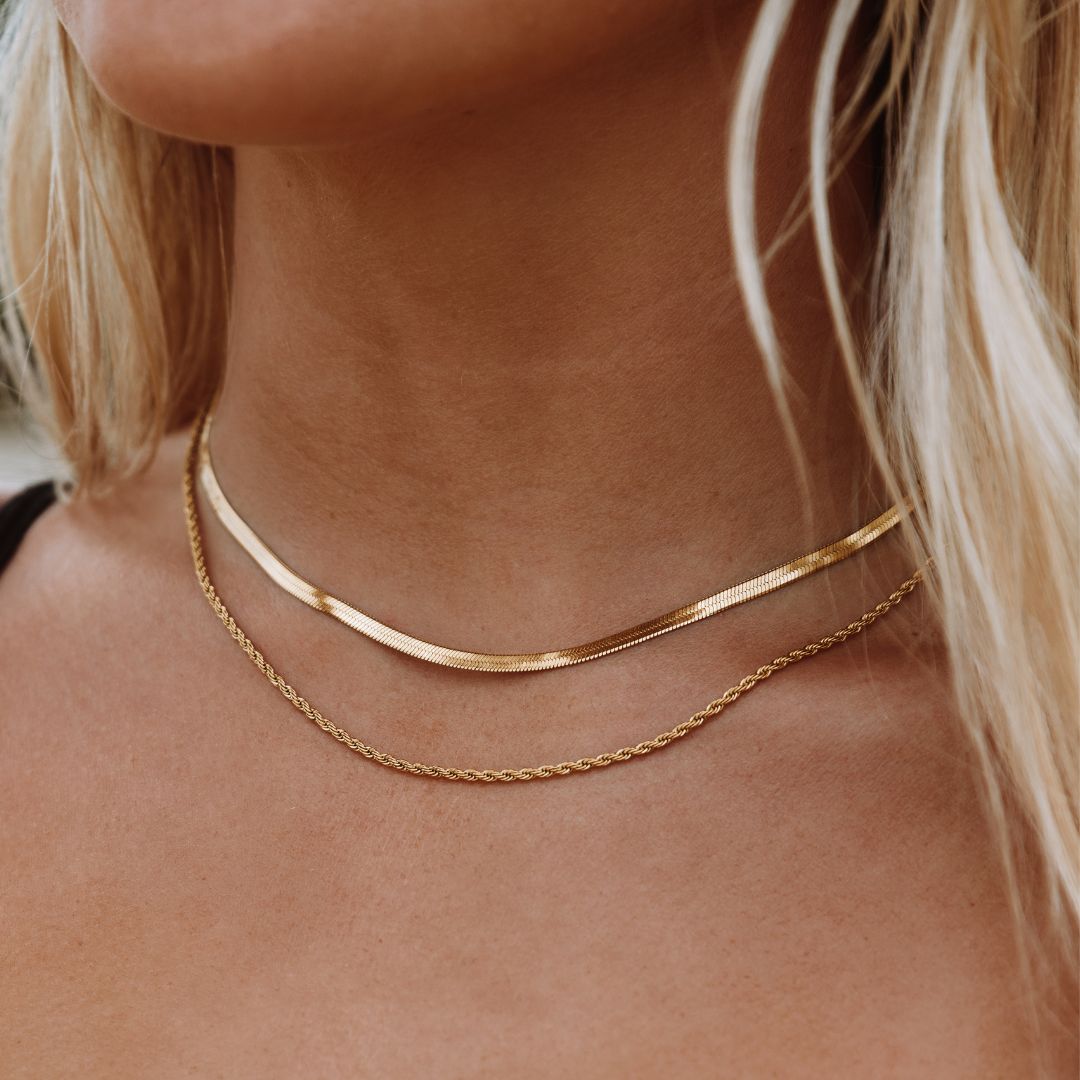



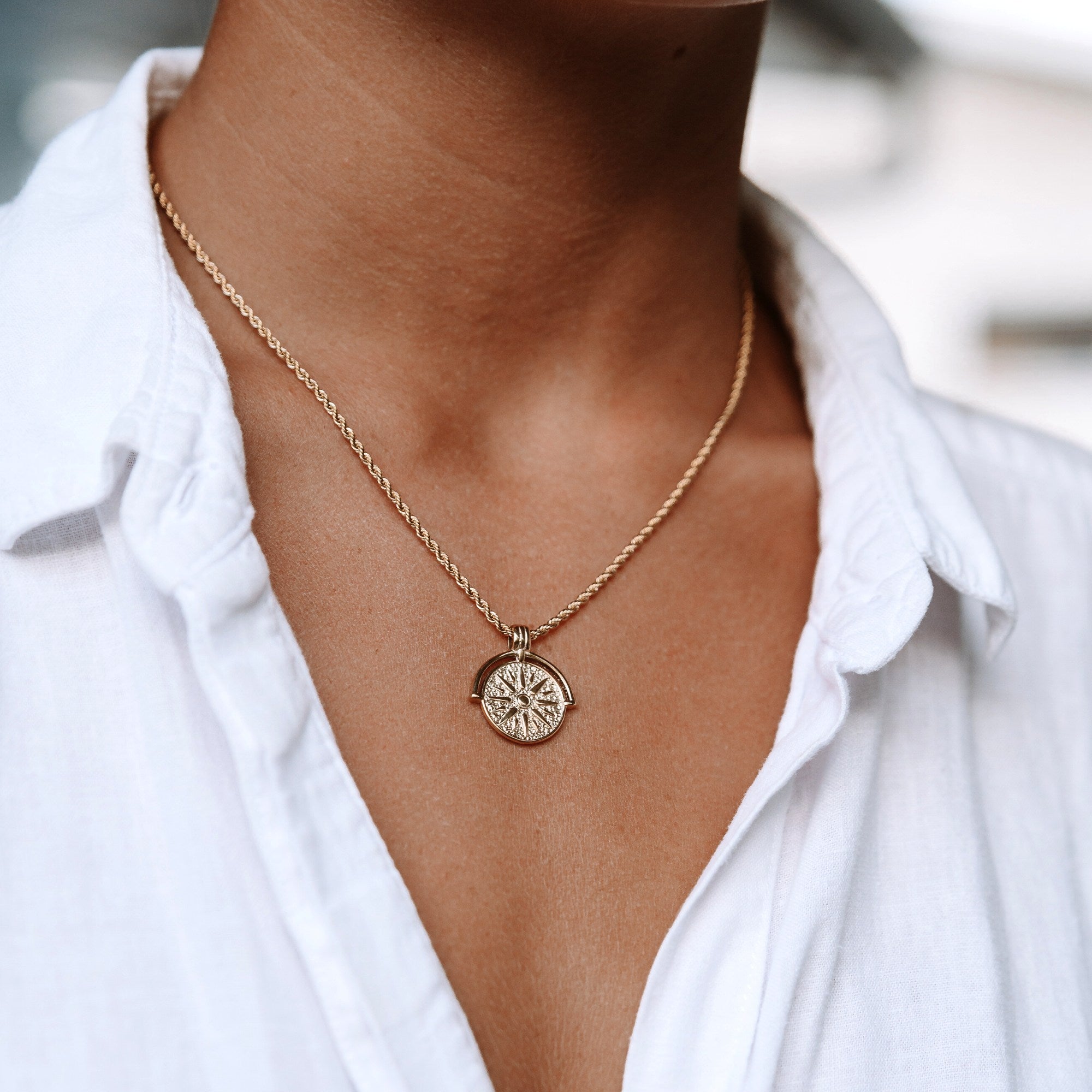

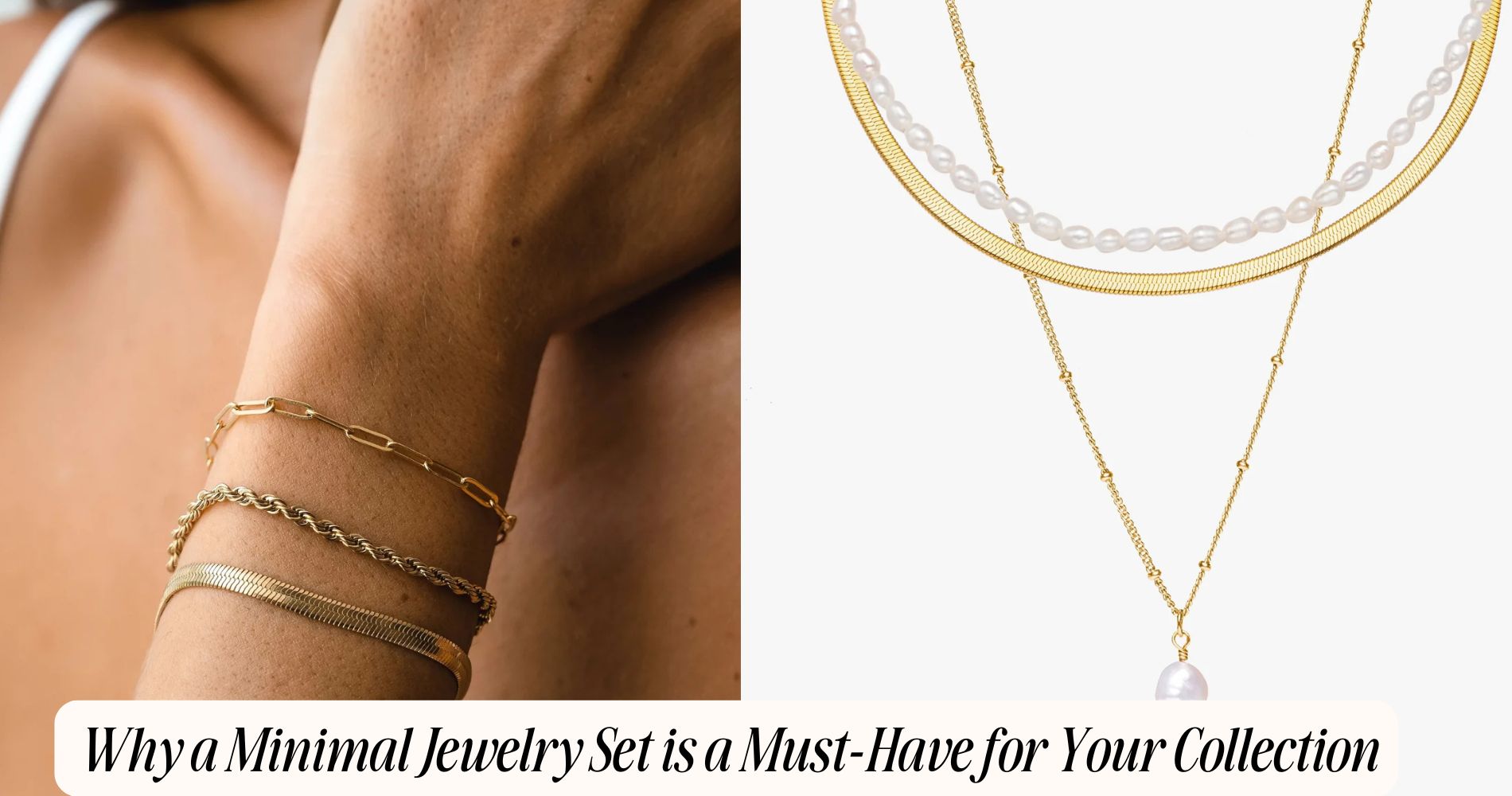
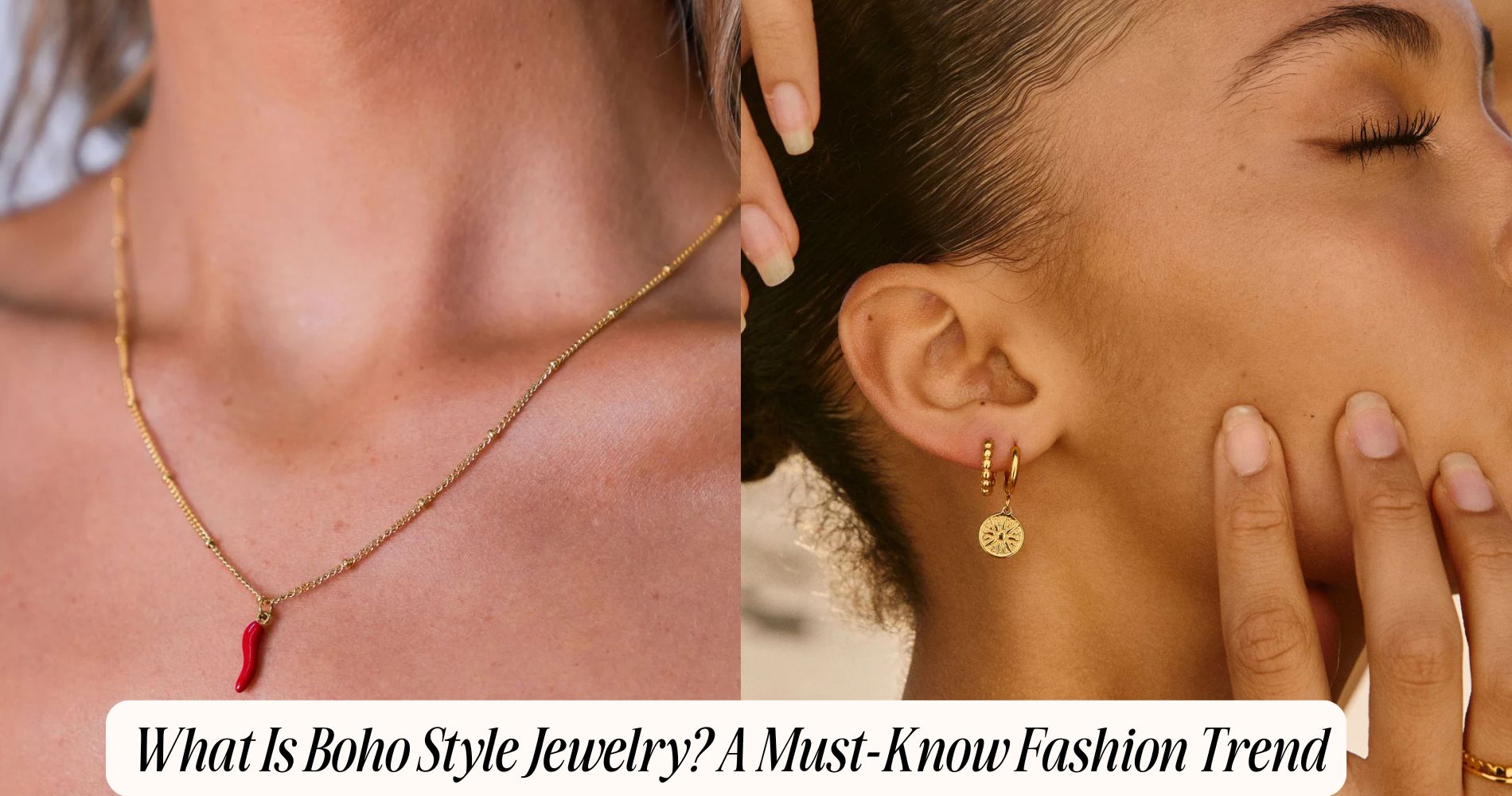




Leave a comment
This site is protected by hCaptcha and the hCaptcha Privacy Policy and Terms of Service apply.